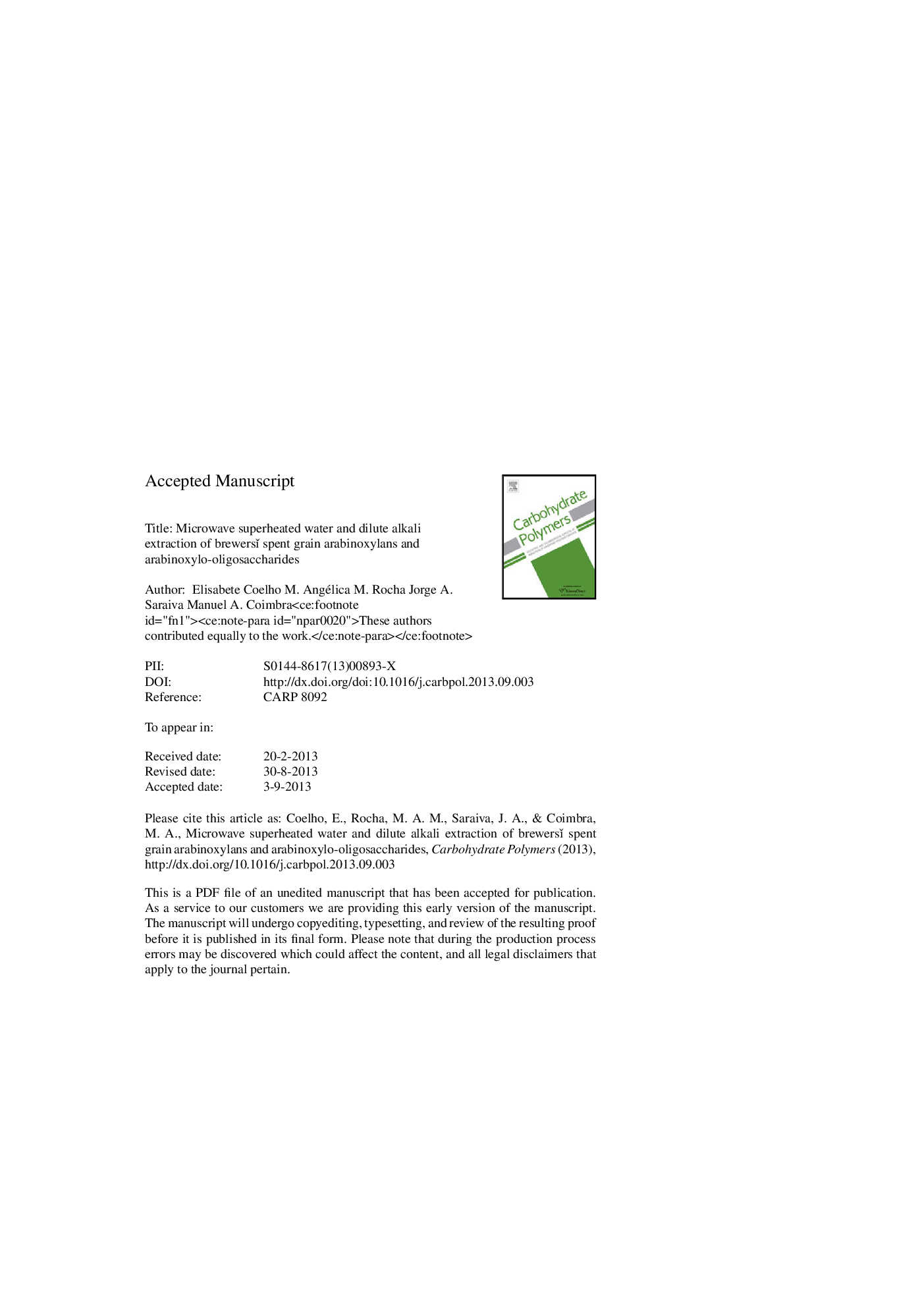| Article ID | Journal | Published Year | Pages | File Type |
|---|---|---|---|---|
| 7793552 | Carbohydrate Polymers | 2014 | 33 Pages |
Abstract
Microwave superheated water extractions (MWE) were performed to evaluate the feasibility of this technology for quantitative recovery of the arabinoxylans (AX) or arabinoxylo-oligosaccharides (AXOS) from brewers' spent grain (BSG). The AX + AXOS yield increased with the increase of the temperature in the range from 140 to 210 °C during 2 min. The higher temperatures promoted depolymerisation, debranching, and deesterification of the polysaccharides, with formation of brown products. The conditions that promote a compromise between the yield and the structure obtained, minimizing the thermal degradation of the fractions extracted by MWE are the following: (1) 140 °C, to remove the residual starch mixed with β-glucans; (2) Suspension of the residue left in water and treated at 180 °C; (3) suspension of the residue in 0.1 M KOH and treated at 180 °C. Using this sequential procedure, it was possible to extract 62% of BSG AX + AXOS, presenting degrees of polymerization ranging between 7 and 24 xylose residues, and a degree of phenolic acids esterification between 5 and 21%. The structural variability obtained by MWE allows defining specific types of compounds for different applications and uses depending on the extraction conditions used.
Keywords
Related Topics
Physical Sciences and Engineering
Chemistry
Organic Chemistry
Authors
Elisabete Coelho, M. Angélica M. Rocha, Jorge A. Saraiva, Manuel A. Coimbra,
